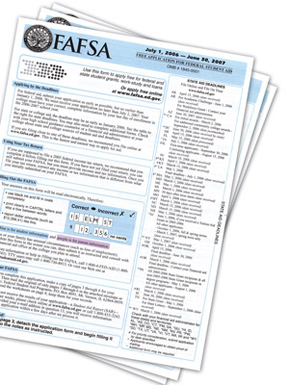Student Loan Changes and You
New law expands direct lending by feds

It turns out that the monumental health-care bill passed by Congress two weeks ago is about more than health care. Tethered to the massive overhaul are big changes in the student loan program. BU Today has assembled a primer on changes wrought by the bill, with answers drawn from media reports and interviews with experts at and outside of BU.
What does the new law do?
It scraps the government’s middleman subsidies for banks lending to students. This amounts to $68 billion over the next 11 years, paid to such banks as the student-lending leviathan Sallie Mae. Private banks may still service loans and will offer private, credit-based student loans that the government won’t guarantee.
Most of the savings from the elimination of these subsidies will be funneled into bigger Pell grants for low-income students. About 15 percent of BU undergraduates have Pells, according to Christine McGuire, executive director of BU’s Financial Assistance Office.
Although it won’t benefit current borrowers, the savings will also be used to ease the payback burden on graduates. Those who take out new loans after July 1, 2014, will be required to fork over 10 percent of their monthly income to repayment, down from the current 15 percent, and if they don’t fall behind in their payments, their loans will be forgiven after 20 years. Currently, forgiveness takes 25 years.
What does all that mean for BU students?
McGuire says most student borrowers here, undergraduate and graduate, get their loans directly from the government; only 18 percent of families have private loans, which they obtain on their own.
“My office and the private lenders tell students to borrow the maximum in federal loans before seeking private loans,” says McGuire. “Our students still get Sallie Mae and other private loans, but they seek them on their own as extra financing.” Financial Assistance administers three types of direct loans: Stafford (for students with and without financial need), PLUS (for parents and graduate and professional degree students), and Perkins (only for students demonstrating financial need).
What about the increase in Pell grants? How helpful will that be?
The increase, tied to inflation for the next few years, will raise the maximum grant a mere $425, from $5,550 next year to $5,975 by 2017.
“This investment is a step in the right direction,” says Pedro de la Torre III, an education expert with the Center for American Progress, a Washington think tank. “But we are still not near the finish line. It is vital that Congress continue to find ways to expand the program over the next decade.”
Can someone with a private bank loan swap it for a direct loan?
“No,” says McGuire. “ ‘Direct loan’ refers to government-guaranteed loans, and these require a financial aid application. Direct government loans should always be sought before pursuing private credit-based borrowing. Private student loans are more expensive.”
Previously, student loan borrowers could not file for bankruptcy protection. Does the new law change that?
No. “This is an issue that Congress should solve,” says de la Torre. “There is no reason why debt taken out for an education should be a bigger burden than debt taken out to buy a Lamborghini.”
Some graduates paying off loans have alleged that there are private lenders who resort to draconian collection efforts and impose onerous late charges and interest hikes for a missed payment. De la Torre says the new law does not address those matters, but does offer some benefits.
For example, he says, direct government loans generally come with smaller late fees than private loans. And “while many of the same lenders, including Sallie Mae, will be involved in collecting and servicing loans, the secretary of education can punish bad behavior by lowering their volume or even kicking them out of the program,” he says. “I am confident that this department will begin improving oversight over these contractors, but it is important for consumer rights organizations to urge the department to be aggressive in protecting the rights of borrowers.”
Post a comment about how student loans are affecting you. Will they influence what kind of job you look for after graduation? Does it mean you plan to work for a few years to save up money for graduate school?
Amy Laskowski can be reached at amlaskow@bu.edu; follow her on Twitter at @amlaskow. Rich Barlow can be reached at barlowr@bu.edu.


Comments & Discussion
Boston University moderates comments to facilitate an informed, substantive, civil conversation. Abusive, profane, self-promotional, misleading, incoherent or off-topic comments will be rejected. Moderators are staffed during regular business hours (EST) and can only accept comments written in English. Statistics or facts must include a citation or a link to the citation.